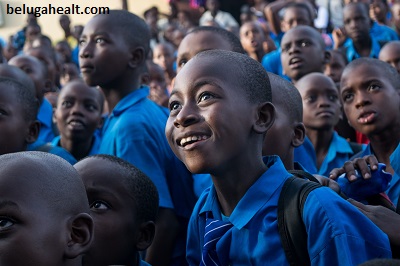Public Health Educator Youth Prevention Coordinator

Public Health Educator Youth Prevention Coordinator:
Public Health:
Definition of Public Health Educator:
Youth Prevention Coordinator Public health is a vast field that encompasses the health and well-being of communities. In this field, the role of public health educators, especially in the position of Youth Prevention Coordinator, is of great importance. Therefore, in the following paragraphs, an attempt has been made to discuss the responsibilities, skills, and expected importance of a Youth Prevention Coordinator in public health, followed by frequently asked questions about the role of the position.

Knowledge About the Job:
Public Health:
Youth Prevention Coordinator: What is it?
Technically, the Youth Prevention Coordinator is a Public Health Educator who usually coordinates in creating and implementing programs that prevent health issues among the youth. This usually entails raising awareness among the youths on the numerous risks to their health and healthy behaviors, among other things, and engaging communities to intensify the reduction of substance abuse cases, mental disorders, and STIs.
Tasks:
Development and Implementation of Programs:
- Designing programs aimed at particular health risks to the youth
- Working with a specific community’s school systems, organizations, and health agencies in support of efforts for easy delivery of programs
- Collection of Statistics and Analysis
- Presentation of statistics and trends relating to youth health for the development of programs
- Analysis of existing programs from which to create improvements
- Reach out to parents, teachers, and other leaders in the community to have the word spread on matters related to youth health.
- Organizing Workshops, Seminars, and Health Fairs on Information and Resource Dissemination.
Advocacy:
Advocate policies and practices that are healthy and humane in their treatment of the youth at local and state levels.
Collaboration with other health professionals to impact legislative approaches toward the health of youth.
Resource Development:
Public Health:
Develop educational materials for the youth, such as brochures, videos, and online content.
Making such resources culturally relevant, as well as accessible to all sections of society.
Skills
- Communication Skills: Complicated health information that helps in communicating the understandability of diverse audiences, including youth, parents, and community members.
- Cultural Competency: Further, it requires an understanding of respect for cultural background served through youth.
- Analytical Skills: Analysis of health data when evaluating the success of programs
- Project Management: Preparation implementation and management of more than one program and activity at a time.
- Interpersonal Skills: Built very strong relationships with community stakeholders, schools, parents, and health organizations.
Youth Prevention Coordinators and Working on Youth Health Issues:
Public Health:
Teenagers are at risk for numerous health conditions. A few of these include mental health disorders substance abuse, or risky sexual activity. According to the CDC, 20% of high school students had used any tobacco product, and 30% reported having had sexual intercourse.
Youth Prevention Coordinators prevent through education and prevention and further ensure the involvement of communities at large to seek solutions to such issues.
Healthy Communities Building:
Public Health:
Youth prevention coordinators, who focus on prevention, work to create healthier communities by helping to educate youth on the knowledge and skills they will need to make healthy decisions that ultimately reduce the occurrence of long-term health problems. This proactive stance benefits youth and frees up the health care system to deal with more serious conditions.
Healthy Life-Long Behaviors:
Educate healthy living may be channels of lifetime habits and through programs under the direction of Youth Prevention Coordinators, including nutrition, physical activity, awareness of mental health, and prevention of substance use. This might offer youth higher capabilities to live healthily for their entire lifetime, even when they become adults.

Frequently Asked Questions About Youth Prevention Coordinators:
Public Health:
What does a Youth Prevention Coordinator need to qualify?
Most positions require an academic degree at the baccalaureate level in a field like public health or health education, and many times master’s are needed for those types of leadership or program management roles. Those certifications will also help in terms of increasing your chances of becoming a Certified Health Education Specialist (CHES) or Certified in Public Health (CPH).
What kinds of programs might you be coordinating as a Youth Prevention Coordinator?
Some programs are supervised by the Youth Prevention Coordinators, such as, but not limited to,
- Substance Abuse Prevention Programs:
- Sex Education:
- Activities related to awareness of emotional illness:
- Nutrition and Physical Activity Programs:
Such activities are performed in coordination with schools, community-based organizations, and departments of health.
Youth Prevention Coordinators monitor program effectiveness by way of
Effectiveness is usually determined through data collection and analysis that could involve surveys, focus groups, and health outcome measurements. For example, the coordinators can follow a change in the knowledge, attitudes, and practices of the young participants from the time they join a program until the time they leave, which will determine the effectiveness.
What are some of the barriers Youth Prevention Coordinators face?
Some of them include:
Youth that would have no interest in health education.
Cultural and socio-economic factors may impose constraints on access to programs.
Identifying funding that will make it possible to provide all the resources needed by the programs
Getting to know what is happening in the real world of health via new trends and studies will help me ensure that the programs are timely, appropriate, and effective.
How do Youth Prevention Coordinators work with schools?
The most common way coordinators reach youth is by coordinating with schools. They can coordinate with teachers so they can allow health education to be incorporated into their curriculum, train the school on issues concerning youth health, or host school-based health activities such as health fairs or awareness weeks.
Do youth prevention coordinators also have a chance to find employment opportunities in rural settings?
Yes, the job opportunity is in rural settings though less than in an urban setting. Many rural settings have requirements for health education and prevention programs, and such coordinators would be very useful in efforts aimed at achieving better outcomes concerning youth health in underserved communities.
How can the communities help in assisting Youth Prevention Coordinators?
- The communities can assist Youth Prevention Coordinators through;
- Supplementation of funding and provision of resources in the implementation of programs.
- Encourage local schools to participate in health education with health teachers.
- Encourage involving parents and other members of the community in health issues.
- Advocate health education policies that benefit youth education.
Conclusion:
Public Health:
The Public Health Educator, as a Youth Prevention Coordinator, is important for promoting the health and well-being of youth. They can address critical issues in health head-on and work towards improving healthier communities that empower you to make informed choices about your health. In this ever-changing public health landscape, therefore, having dedicated, skilled Youth Prevention Coordinators will form a salient part of creating a healthy future.

In a world where youths are facing more health challenges than ever, the time has come to invest in prevention and education. These are the efforts of Youth Prevention Coordinators that will bring long-term returns in the health of a community’s youngest members, setting the stage for the healthiest and most informed generation ever.
